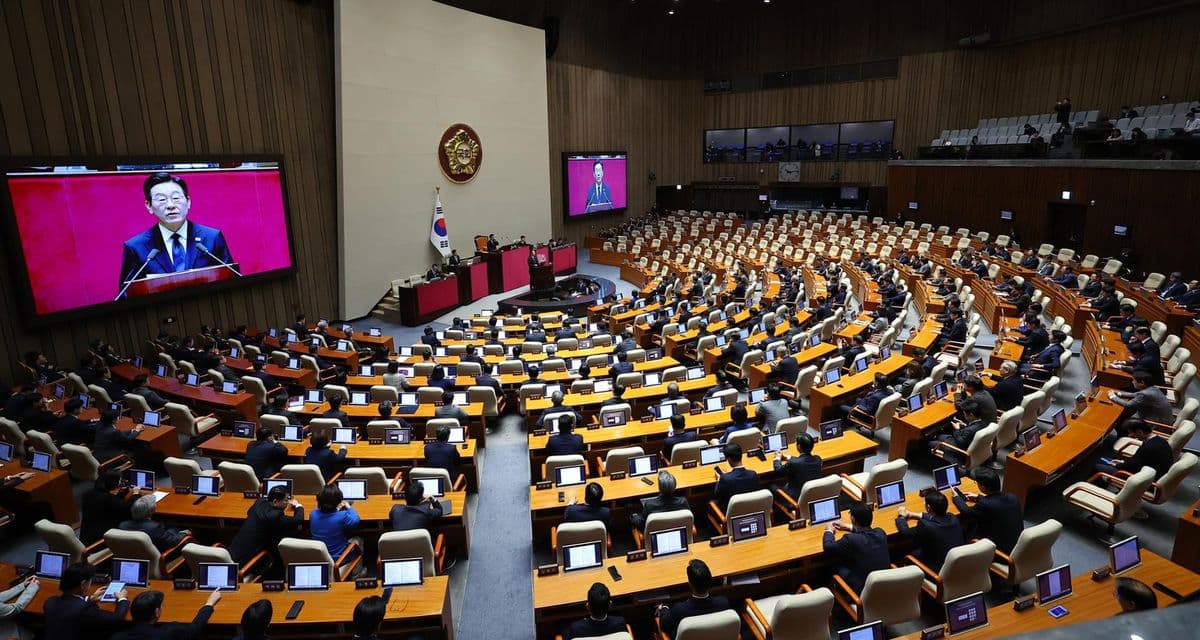We're loading the full news article for you. This includes the article content, images, author information, and related articles.
Seoul's multi-billion dollar push into artificial intelligence and defence signals a global power shift, with potential ripple effects for Kenya's own tech ambitions and international partnerships.

SEOUL, SOUTH KOREA – The South Korean government on Tuesday, November 4, 2025, unveiled a record-breaking 728 trillion won (approximately $525 billion) budget proposal for 2026, featuring a landmark decision to triple spending on artificial intelligence (AI) and significantly increase its defence budget. President Lee Jae Myung, in his first annual budget speech to parliament, framed the spending plan as a strategic pivot to secure the nation's future in an era of intense technological competition and geopolitical uncertainty.
The proposed budget represents an 8.1 percent increase from the current year, the largest jump in four years. The plan, which requires parliamentary approval, is expected to pass as President Lee's Democratic Party holds a majority in the National Assembly.
At the core of the new budget is a 10.1 trillion won ($7 billion) allocation for AI development, a more than threefold increase from the 3.3 trillion won budgeted for 2025. President Lee stated the goal is to propel South Korea into the world's "top three AI powers," alongside the United States and China.
"We will significantly expand investment to usher in the 'AI era,'" Lee announced in his speech. "In the AI era, being late by a single day means falling behind by an entire generation."
The investment will focus on several key areas, including acquiring high-performance computing infrastructure, such as 15,000 advanced graphics processing units (GPUs), and nurturing a skilled workforce by expanding AI graduate schools and training 11,000 advanced specialists. A significant portion will also support the integration of AI into core industries like robotics, automotive, and shipbuilding, a concept termed "physical AI."
The budget also proposes a 66.3 trillion won ($47.1 billion) for national defence, an 8.2 percent increase from the previous year. This marks the largest percentage increase in defence spending since 2019.
President Lee emphasized the need for a "self-reliant defence" to ensure peace and security on the Korean Peninsula. The increased funds are earmarked for modernizing military systems with cutting-edge technology, including AI-powered drones and robotics, to transform the military into an "elite, smart force." This move is widely seen as a response to ongoing regional security challenges and a desire to reduce reliance on foreign military support.
While South Korea's budget focuses on domestic transformation, its global ambitions have direct relevance for Kenya. As a key development and technology partner, Seoul's accelerated push into AI and advanced manufacturing could create new opportunities for collaboration and investment in East Africa.
Kenya, which launched its own National AI Strategy for 2025-2030 in March 2025, aims to become a regional hub for AI innovation. The strategy focuses on developing digital infrastructure, fostering a local data ecosystem, and promoting AI research. South Korea's deep expertise and capital in these areas present a significant opportunity for partnership.
Recent agreements have already strengthened these ties. In June 2024, South Korea committed $485 million (Ksh 63 billion) in funding, with a significant portion allocated to developing a Digital Media City at Konza Technopolis. This followed earlier partnerships to establish the Kenya Advanced Institute of Science and Technology (KAIST) at Konza, modeled after Korea's own flagship tech institution. Furthermore, collaborations in smart city development and agriculture signal a deepening economic relationship.
As South Korea channels vast resources into becoming a global tech leader, Kenya stands to benefit from strengthened partnerships, knowledge transfer, and foreign direct investment, potentially accelerating its own Vision 2030 goals and its ambition to lead Africa's digital transformation.
Keep the conversation in one place—threads here stay linked to the story and in the forums.
Sign in to start a discussion
Start a conversation about this story and keep it linked here.
Other hot threads
E-sports and Gaming Community in Kenya
Active 9 months ago
The Role of Technology in Modern Agriculture (AgriTech)
Active 9 months ago
Popular Recreational Activities Across Counties
Active 9 months ago
Investing in Youth Sports Development Programs
Active 9 months ago